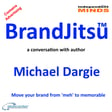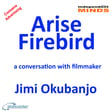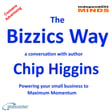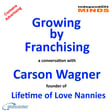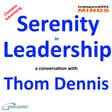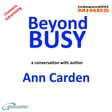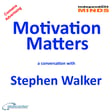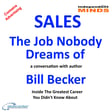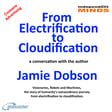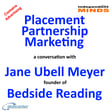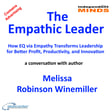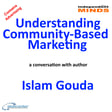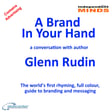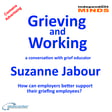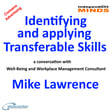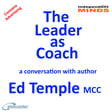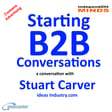
Increase Customer Engagement and Conversions– a conversation with Geoffrey Klein
Geoffrey Klein is the founder of Nine Dots Media and a lecturer at Wharton Business School.
In his book The Content Beast Geoffrey explains how businesses can create story-driven content to connect with the right customers.
In this episode of the Abeceder podcast The Independent Minds, Geoffrey discusses his approach to brand storytelling with host Michael Millward.
Michael and Geoffrey describe the origins of their respective brands and explain that the story of a brand is the first stage of explaining to a perspective customer what you do and the value you add.
Geoffrey explains the science of storytelling and the emotional connection a good story can create. This prompts Michael to compare his response to the characters in novels. You must care about the character, or the brand.
Geoffrey shares the secret to creating good brand stories, which he describes as the 11th Commandment.
More information about Geoffrey Klein and Michael Millward is available from abeceder.
Audience Offers
The Independent Minds is made on Zencastr, because as the all-in-one podcasting platform, Zencastr really does make creating content so easy.
If you would like to try podcasting using Zencastr visit zencastr.com/pricing and use our offer code ABECEDER.
Travel
With discounted membership of the Ultimate Travel Club, you can travel anywhere at trade prices on flights, hotels, trains, and many more travel related purchases.
Fit For Work Look after your health and you will be fit to create great marketing stories.
That is why we recommend The Annual Health Test from York Test; a 39-health marker Annual Health Test conducted by an experienced phlebotomist with hospital standard tests carried out in a UKAS-accredited and CQC-compliant laboratory.
A secure Personal Wellness Hub provides easy-to-understand results and lifestyle guidance
Visit York Test and use this discount code MIND25.
Telecommunications – Visit Three for information about business and personal telecom solutions from Three, and the special offers available when you quote my referral code WPFNUQHU.
Being a Guest
We recommend the podcasting guest training programmes available from Work Place Learning Centre.
We use Matchmaker.fm to connect with potential guests If you are a podcaster looking for interesting guests or if you have something interesting to say Matchmaker.fm is where great guests and great hosts are matched and great podcasts are hatched. Use our offer code MILW10 for a discount on membership.
We appreciate every like, download, and subscriber.
Thank you for listening.
